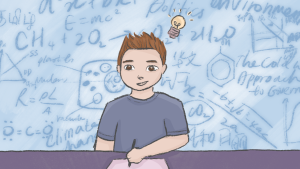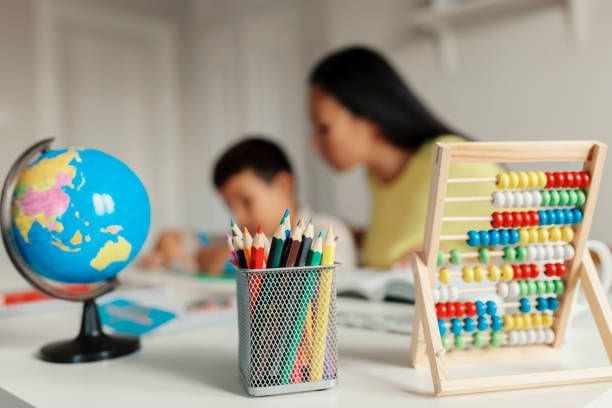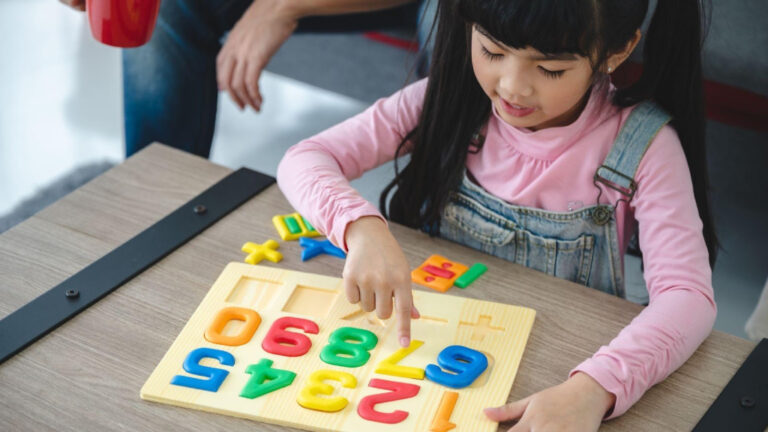
How Will Kindergarten Shape Your Child's Skills and Development

They say it’s best to start teaching your children at an early age so they can progress further as they grow. As they grow older, everything they have learned early on will be further developed, and they can enhance the skills they have acquired. For parents, teaching their kids early on can be a means to help their children get ready for when they start attending school. However, there are still many things that can factor into the transition from home to school for children. This is where kindergartens may help parents and their children.
While kindergarten education isn’t necessarily mandatory in Singapore, it is still highly encouraged to provide children with as much education as early on as possible. And while the curriculum of every kindergarten may differ from school to school, it is still a good way to provide an early learning platform for young children. Young students should also learn about the different skills, like language and communication, nurturing healthy habits, and developing their motor skills in accordance with their age.
For parents wanting their children to experience more than just a glorified daycare center, these are some of the developments and skills their children can learn in kindergarten that will help prepare them for their academic journey.
Table of Contents
What different subject area skills will they learn?
We are dividing this into two parts: the first for the subject areas students will encounter throughout their academic lives, and the second for other developments that will help them throughout their academic lives and even further on. Let’s first start with the subject areas.

1. Math skills
Math is a daunting subject for many. Students can describe it as their most complicated subject. Numerical literacy is claimed to be one of the hardest parts of school by both parents and students alike. However, it is also one of the most important subject areas that need to be taught to students early on. In most kindergartens, they start by teaching students the very basics and foundation of Math, which includes counting, recognizing, writing, and ordering numbers from 1 to 50.
Aside from numbers, children are also taught about shapes, their names, and how to describe them. They will learn to draw and describe many basic shapes, such as circles, squares, triangles, rectangles, and many more. These are essential skills that they will also need in the future for more advanced Math lessons.
Additionally, children will also be taught time-telling skills. While the concept may be a little complicated for them and they may not fully grasp it as easily, unlike shapes or counting numbers, they should still be able to identify the closest hour and the ways of telling time by looking at the clock. With this, they will also be able to tell the corresponding activity for every hour of the class.
2. Science skills
The same with Math, Science is also labeled as one of the more complicated subjects. It is an umbrella term for its many branches, which can confuse many students. However, the same with Math, Science skills taught in kindergarten lay the foundation for the more advanced journey students will take in the future.
Science at the kindergarten level is more about appealing to the child’s sense of curiosity. It is about encouraging the child to see the world around them and become curious about how it works. There are many ways for teachers to do this, whether through experiments, watching videos, or even just observing the world around them. Aside from this, they also encourage children to start thinking like scientists by coming up with questions, predicting the answers to their questions, testing their idea, documenting what has happened, and coming up with solutions to their questions. There are also many activities that teachers can do to help with this, such as simple experiments like Sinks and Floats. These are the activities that will jumpstart your child to explore, open their mind, and learn about the world around them, which will also help their education and even beyond.
3. Reading skills
Another important skill your child will learn is reading. Throughout their day, they will constantly be exposed to letters. They will also learn the alphabet, where they will learn about the uppercase and lowercase letters, as well as their corresponding sounds. Through this repetition and memorization, they will start to learn how to read, even starting with easy picture books. And while students will get the time for these sessions in kindergarten, it will also be beneficial for them to continue and practice this at home.
4. Writing skills
A child’s writing journey begins in kindergarten. Since they will be taught reading, they will also be familiarized with the different letters of the alphabet and will be practiced in writing their own name. Aside from their own names, they may also be taught to write simple words such as “cat” and “dog”. Aside from this, they will also get feedback from their teachers, and they will be taught the proper techniques for writing the letters. Like reading, once this is repeatedly done, they will start to master it and can use it as their foundation when they move on to the next level.
5. Creativity
This one is more prominent with kindergarten. Expression of creativity is also one of the keys to learning in kindergarten. Children are allowed to explore different creative aspects, such as music, art, dance, and even storytelling. They are encouraged to use their creativity in activities such as drawing classes or dancing. By learning how to use a number of materials, their motor skills will also be improved. Additionally, children who are allowed to become creative are also happier!
6. Technological skills
In the present day and age, technology has become such a staple in our daily lives. With its ever-growing presence, it is also important to teach children the proper use of technology. They should learn how to safely and effectively use these digital media and use them to their advantage. Phones, computers, and cameras are just some of the resources your child can use to explore technology. These devices can be used to search for information, solve problems, and even create something. Children will also be taught how to use these devices responsibly so they don’t go overboard and miss out on offline experiences as well. However, do note that some schools also don’t use digital devices to teach students.

What other developments are taught?
Now that we have talked about those skills that can be used by children in different subject areas, let’s now tackle the developments that would help them throughout their academic lives.
1. Emotional development
Your little one will meet a lot of people when they first start attending kindergarten. They will meet new friends, teachers, and many more. This is essential for their emotional and social development. Meeting new people will help them begin to identify emotions at a greater range than what they are used to at home. They can identify different emotions in themselves and also recognize them in other people, whether it’s happiness, sadness, or anger. At home, they may have a meltdown that can lead to them getting the attention they want. But that isn’t the same as school. Instead, they will be taught to identify what they are feeling and regulate their emotions.
Additionally, they will also be able to begin to understand societal norms and ways to interact with others. They will begin to interact with other people and relate to them as well. They will start to build relationships with their peers as well.
Kindergarten is truly a time for young children for self-discovery, and a good teacher will be there to ensure they help in the development of self-awareness and self-management of their young students.
2. Physical development
Kindergarten also helps with young children’s spatial awareness. Fine motor skills and hand dominance are all established in the classroom, as children are encouraged to explore various art supplies and technology resources. Aside from this, children will also learn how to tie their own shoelaces and zip up their own jackets from the time they spend away from their families. Children are also encouraged to explore the outside of their classrooms, so there are several opportunities for them to play and gain the physical skills they need, such as jumping rope or playing ball. They can develop their hand-eye coordination with different games as well.
Conclusion
Kindergartens are a good space for great learning and growth in your little ones. They will get to learn a number of things, like core subjects like Math, Science, and English, but also other skills such as emotional, social, and physical. They will also get to spend time outside of their immediate family and may even learn new things they haven’t at home. It is a big first step for your child as they begin their academic journey, but with the right kindergarten and the support of their parents and teachers, it can be an incredible experience for them that will serve as a good foundation for their academics.

Carelle
Carelle is a teacher who has been through the ups and downs of the teacher and learner life. She wishes for every learner to gain educational satisfaction that will help embody the people they want to be in the future.




